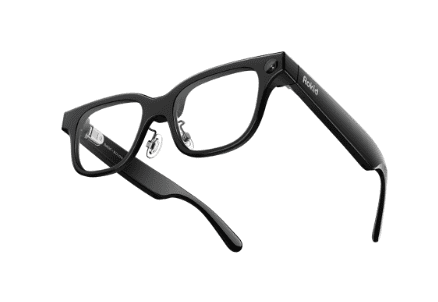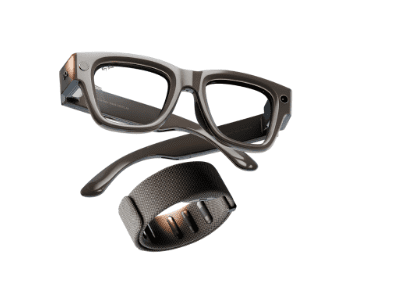As Meta’s new Ray-Ban Display glasses start hitting the market, another player is quietly proving that the appetite for practical, human-first AI wearables is stronger than ever. Rokid Glasses, the world’s lightest full-function AI & AR smart glasses, weighing just 49 grams, are about to surpass $3 million in Kickstarter backing.
Kickstarter Success
With over 300,000 units pre-sold and a swelling community of early adopters and developers, Rokid’s success is redefining what crowdfunding can mean for emerging tech.
Kickstarter has become a proving ground where devices like Rokid Glasses can gain mass-market validation before retail. Instead of relying solely on big-brand marketing power, Rokid has tapped into a global base of backers who see value in real-world tools like translation, transcription, navigation, and object recognition.
Rokid Glasses integrate with ChatGPT, Gemini, DeepSeek, Google Maps, Microsoft Translator, and even custom LLMs, giving users and developers full flexibility.
This open approach is attracting a vibrant developer community, comprising more than 15,000 developers and 5,000 corporate partners in China, with expansion now underway overseas.
From Launch to Global Demand
Since debuting on August 26, Rokid has surged from $0 to nearly $3 million in a little over a month. Along the way, the company staged bold visibility campaigns in Times Square, drew coverage from Bloomberg TV, and was recognized for its viral “high-profile live performance marketing.”
The combination of Kickstarter support and global media traction suggests that a single Silicon Valley giant no longer dominates the conversation around smart glasses. Instead, consumers are signaling their hunger for alternatives that are lighter, more ergonomic, more open, and more practical than what legacy brands have on offer.
Rokid Glasses are powered by the Qualcomm AR1 platform and feature dual monochrome green Micro LED waveguide displays (640×480 per eye, 1500 nits brightness) that balance clarity with eye protection. Unlike single-eye color overlays, Rokid’s dual-eye approach reduces strain, helping users stay focused during extended sessions.
Rokid AI Glasses Core features include:
- Real-time multilingual translation is displayed directly in the field of view.
- Live transcription for conversations and meetings.
- AR navigation overlays for contextual guidance.
- AI-powered teleprompter and smart notes.
- Object and scene recognition via a 12MP Sony IMX681 camera with HDR and stabilization.
- Integrated audio through directional speakers and a 4-microphone array with AI noise cancellation.
Unlike Meta’s reliance on wrist-based gesture controllers, Rokid emphasizes natural, independent operation. The experience feels closer to truly “wearable” computing.
A Turning Point for AI Glasses
As smart glasses once again compete for mainstream adoption, Rokid Glasses might serve as a more balanced and practical choice for early adopters and AI wearable enthusiasts.
While Meta’s display glasses generate a lot of attention, Rokid provides a practical alternative: lighter, open, and suited for daily use. Although they have limitations—the monochrome green AR display may be less vibrant than color options—the benefits of better eye comfort, reduced weight, and practicality might make the trade-off worthwhile.
As Rokid’s Kickstarter campaign approaches $3 million, it’s clear that consumers want more options. Crowdfunding has kick-started AI Glasses from a bold idea into a proven product category, one that could speed up the move from mobile-first computing to wearable AI as the new standard.





































